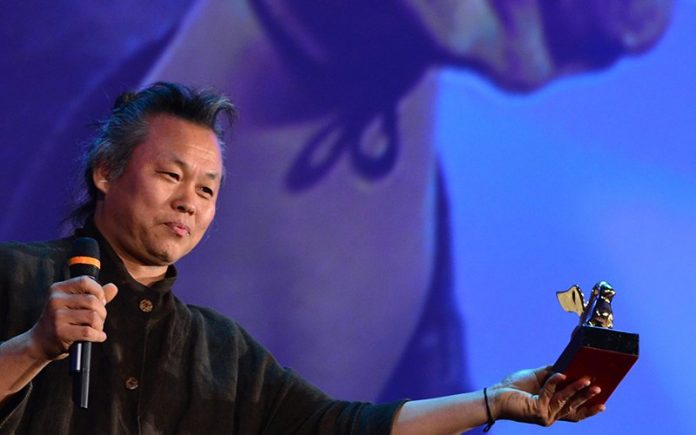
RIGA: Acclaimed South Korean film director Kim Ki-duk, who won global recognition for his violent works and faced allegations of abusing his actresses, died from coronavirus in Latvia on Friday, the country’s top film official said.
“Unfortunately, the sad news about Kim Ki-duk’s death from coronavirus in Latvia is true,” Dita Rietuma, head of the National Film Centre of Latvia, told AFP.
“It is known from his contact persons that he died in a hospital in Riga around 1:30 a.m. earlier today,” she added.
The Korean director, whose works enjoyed huge acclaim at European film festivals where he scooped several awards, died just nine days shy of his 60th birthday.
According to Rietuma, he was on a private visit to Latvia and was not planning any filming.
Local media reported that the director was planning to buy a property and apply for residence in the Baltic eurozone state.
Artur Veeber, an Estonia-based producer, said the two worked together on a new project and Kim was expected back in Estonia in mid-December for a retrospective show marking his birthday.
“Yesterday I learnt that the situation was critical,” Veeber told AFP, referring to Kim’s condition.
Reached by AFP, Kim’s translator Darya Krutova said she would not comment in line with the wishes of the director’s daughter.
Kim won global fame with his bold portrayal of extreme violence and human brutality in allegory-rich movies, but was accused of misconduct against actresses.
The director had not responded to these allegations.
But over the past few years he trained his sights on Russia and other post-Soviet countries where he worked on new projects.
He presided over the main jury of the Moscow International Film Festival last year and shot his last movie, “Dissolve”, in Kazakhstan.
Prominent Russian film critic Andrei Plakhov said that the “enfant terrible” of Asian art-house cinema was appreciated in Russia for his “passion and devil-may-care attitude.”
‘No taboos’
His movies – many featuring gruesome violence against both males and females, and rapes of women – divided audiences, with some accusing him of misogyny and others hailing his cinematography and unflinching portrayal of a social underclass rarely seen in other films.
Laced with this trademark violence, his film “Pieta” won the Golden Lion prize at the Venice Film Festival in 2012.
He directed more than 20 films including “Spring, Summer, Fall, Winter… and Spring” — an uncharacteristically serene film exploring the cycle of life through a Buddhist monk’s existence.
“Kim’s films are modern myths,” Plakhov wrote for Kommersant broadsheet. “There is always temptation and redemption. And there is also God watching the human tragicomedy.”
Another prominent Russian critic, Anton Dolin, writing for Meduza news portal, said that for Europe and the United States Kim had become the embodiment of “Asian extreme.”
State Russian television hailed Kim, saying “there were no taboos for him in his study of human nature.”


